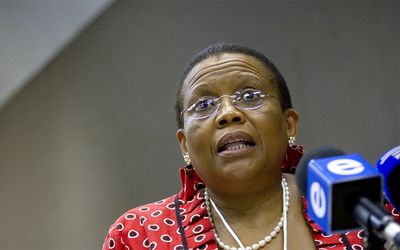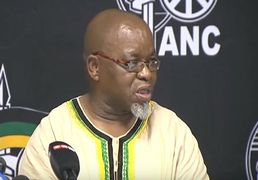NOTHING in the public protector’s report about Electoral Commission of South Africa (IEC) chairwoman Pansy Tlakula calls into question the elections’ integrity, Ms Tlakula said in court papers.
Two weeks before the general elections, the Electoral Court will on Tuesday hear a case by some opposition parties hoping to start the process to remove her as chairwoman of the body that will oversee the poll.
The parties want Parliament to commence proceedings to remove Ms Tlakula. Doing so will give the president the power to suspend her in the meantime.
At present, his hands are tied: the Electoral Act allows suspension only once a process for removal starts in Parliament, and it can start the process only "upon recommendation of the Electoral Court" after a misconduct finding.
Th e case follows a report by Public Protector Thuli Madonsela last year, which found Ms Tlakula oversaw a grossly irregular process to lease the IEC’s premises. It found she had an "undisclosed and unmanaged conflict of interest" in the lease, through her business relationship with Thaba Mufamadi, chairman of a company with a 20% stake in the company awarded the tender.
The findings were backed by a Treasury-commissioned investigation that found the irregularities resulted in the IEC being overcharged R20.8m -R110m over the lease’s 10-year term.
The United Democratic Movement, the African Christian Democratic Party, Agang SA, the Congress of the People and the Economic Freedom Fighters say Ms Tlakula’s presence on the IEC is putting the "credibility of the 2014 elections at stake". Their counsel David Unterhalter SC said "each day" Ms Tlakula remains in office, she compromises the elections, "as she stains the commission … with the public scandal that currently surrounds her".
In an answering affidavit, Ms Tlakula said the allegation was "baseless" and that many of the report’s findings were "simply wrong or based on a misunderstanding".
Even if true, there was no basis to argue that the findings would affect people’s confidence in the integrity, impartiality and independence of the commission, she said.

Independent Electoral Commission chairwoman Pansy Tlakula. Picture: THE TIMES
NOTHING in the public protector’s report about Electoral Commission of South Africa (IEC) chairwoman Pansy Tlakula calls into question the elections’ integrity, Ms Tlakula said in court papers.
Two weeks before the general elections, the Electoral Court will on Tuesday hear a case by some opposition parties hoping to start the process to remove her as chairwoman of the body that will oversee the poll.
The parties want Parliament to commence proceedings to remove Ms Tlakula. Doing so will give the president the power to suspend her in the meantime.
At present, his hands are tied: the Electoral Act allows suspension only once a process for removal starts in Parliament, and it can start the process only "upon recommendation of the Electoral Court" after a misconduct finding.
Th e case follows a report by Public Protector Thuli Madonsela last year, which found Ms Tlakula oversaw a grossly irregular process to lease the IEC’s premises. It found she had an "undisclosed and unmanaged conflict of interest" in the lease, through her business relationship with Thaba Mufamadi, chairman of a company with a 20% stake in the company awarded the tender.
The findings were backed by a Treasury-commissioned investigation that found the irregularities resulted in the IEC being overcharged R20.8m -R110m over the lease’s 10-year term.
The United Democratic Movement, the African Christian Democratic Party, Agang SA, the Congress of the People and the Economic Freedom Fighters say Ms Tlakula’s presence on the IEC is putting the "credibility of the 2014 elections at stake". Their counsel David Unterhalter SC said "each day" Ms Tlakula remains in office, she compromises the elections, "as she stains the commission … with the public scandal that currently surrounds her".
In an answering affidavit, Ms Tlakula said the allegation was "baseless" and that many of the report’s findings were "simply wrong or based on a misunderstanding".
Even if true, there was no basis to argue that the findings would affect people’s confidence in the integrity, impartiality and independence of the commission, she said.



























Change: -0.47%
Change: -0.57%
Change: -1.76%
Change: -0.34%
Change: 0.02%
Data supplied by Profile Data
Change: -1.23%
Change: -0.37%
Change: -0.47%
Change: 0.00%
Change: -0.42%
Data supplied by Profile Data
Change: 1.29%
Change: 1.53%
Change: 1.22%
Change: 1.10%
Change: 1.28%
Data supplied by Profile Data
Change: 0.04%
Change: -0.52%
Change: 0.20%
Change: -1.38%
Change: -1.73%
Data supplied by Profile Data